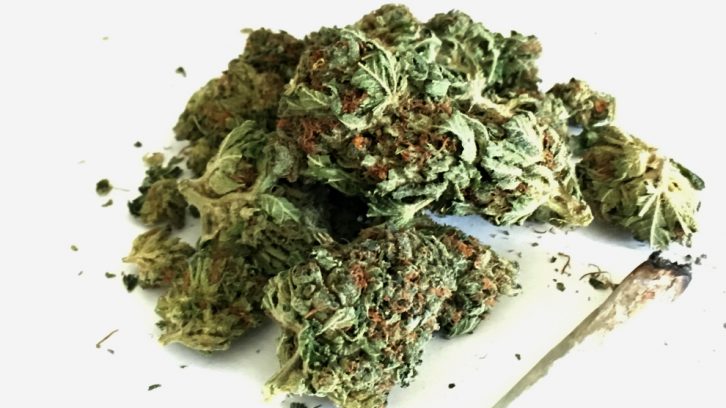Court
Antigonish County man appeals marijuana conviction
Lawyer argues William Leigh Brady’s conviction the result of ‘inconsistent’ jury verdict

caption
The federal government announced in April that it planned to introduce legislation legalizing marijuana in the spring of 2017.
caption
The federal government announced in April that it plans to introduce legislation legalizing marijuana next spring.An Antigonish County resident has appealed both his sentence and conviction of two charges for trafficking of marijuana.
In February, William Leigh Brady, 66, was found guilty by a jury of one count of trafficking in marijuana and one count of possession for purposes of trafficking marijuana.
The same jury also found him not guilty of one count of trafficking cannabis resin (hashish) and one count of possession for purposes of trafficking cannabis resin.
Brady was sentenced in April in provincial court to 18 months of house arrest. He was granted bail in July, pending the result of his appeal.
His case was heard at the Nova Scotia Court of Appeal in Halifax on Monday.
Brady’s lawyer, Adam Rodgers, asked the court to overturn the jury’s decision. He argued that the jury, in finding Brady not guilty of the hashish charges but guilty of the marijuana charges, had arrived at an inconsistent verdict.
“The jury must have been confused with the evidence or else reached some unjustifiable compromise,” he said.
A tale of two suitcases
Brady was arrested in January 2013 in connection with Operation Hakon, a Nova Scotia RCMP investigation that targeted drug trafficking in Eastern Canada.
According to Brady’s sentencing decision, police observed Brady meeting with another individual at the side of the Trans-Canada Highway in Antigonish County in November 2012. When Brady and the second individual departed, police followed the second vehicle. That vehicle — driven by a third party but owned by Brady — was stopped and searched. Police discovered more than nine kg of marijuana and almost 500 g of hashish in two suitcases.
Rodgers argued in court that the jury’s inconsistent verdict was rooted in how the drugs were distributed within the two suitcases. The hashish was found in only one suitcase, while the more than 9 kg of marijuana applied to Brady’s conviction consisted of marijuana found in both suitcases.
If Brady had possession of the marijuana, Rodgers told the court, than he must also have had possession of the hashish.
“If he had one (suitcase), he had both,” he said. “If he didn’t have one, he had none.”
Crown attorney Leonard MacKay acknowledged in court that the decision to consider both suitcases as part of the sentencing decision was a mistake.
“It was an oversight by the Crown and the judge to use those facts,” he said.
Evolving legislation
Rodgers also argued that the 18-month sentence was too severe. He told the court that since the federal government has stated it plans to legalize marijuana, the punishment for marijuana-related crimes should be akin to a regulatory offence like ice-fishing without a permit.
Regulatory violations, Rodgers explained, are met with fines rather than criminal sentences.
He also argued that the government’s failure to put in place transitional measures has left many marijuana producers operating in a confusing environment.
“It’s like the armistice has been scheduled but the fighting continues,” said Rodgers.
MacKay pointed out to the court that Brady’s offences took place in 2012, before any potential legalization legislation was ever announced.
“There is no reason a judge should consider speculative changes to the law,” said MacKay. “The judge was perfectly correct to sentence [Brady] according to current law.”
The court of appeal has opted to reserve its decision, but did not indicate when a new decision will be made.

